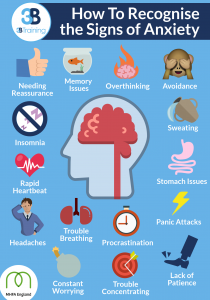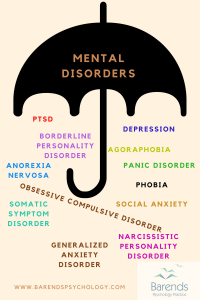
Mental disorders are categorized as such if they cause impairment of mental functioning. The term "mental disorder" is used most often in international clinical documents. This term also refers to an illness, and it does not imply that the brain and body are separate. However, there are numerous overlapping definitions of this condition. This article will briefly discuss the definitions of mental illnesses and how they differ from one another. This article will also cover the differences between depression and anxiety and their symptoms.
Some of the most common types of mental illness are bipolar disorder, attention deficit hyperactivity disorder, schizophrenia, obsessive-compulsive disorder, and mania. Each type of mental illness has distinct symptoms. Regardless of its severity, the treatment options can vary from person to person. Some types are more difficult to treat than others, and some may be better than others. In some cases, an individual can learn how to treat their symptoms on their own, but the early recognition of a mental disorder is the most important step.
As a general rule, early recognition of mental disorders is the best way to treat the symptoms and avoid the worsening of the condition. While episodes of mental illness can come and go during a person’s lifetime, recognizing it in its earliest stages can result in an improved outcome. Generally, effective treatments include psychotherapy, medication, cognitive and behavioural psychological therapies, psycho-social support, and psychiatric disability rehabilitation. In some cases, individuals can learn how to manage their symptoms.
A mental disorder is characterized by feelings of sadness, loss of interest, and feelings of guilt. During the course of a depression, a person may experience other symptoms such as decreased appetite, sleep problems, and poor concentration. The illness can last for a long time, but some people experience it intermittently, which can result in permanent damage to their life. Although there are a variety of possible diagnoses, the fact remains that the only way to treat a mental disorder is to address it in a timely manner.
As with any disease or condition, early identification and treatment are crucial to a positive outcome. An individual’s mental health and wellbeing are affected by many factors, so early recognition is essential for successful treatment. The most effective treatments will be tailored to their needs, including social support and preventing or addressing risk factors. They may also have to undergo counseling. As with any other condition, the best treatment is individualized. The right diagnosis is crucial for the patient and can improve their quality of life.

A mental disorder does not define a person’s identity. Even though it is a disease, a person has other areas of strength and competence. This stigma also stems from a lack of mental health literacy. People who do not understand the importance of these traits and are unwilling to talk about them may have negative attitudes towards them. This could lead to stigmatization. Hence, it is important to educate yourself on the symptoms of mental illnesses and seek treatment for them.
Early diagnosis of a mental disorder is vital to achieve a better outcome. Some people may have a single episode of mental illness, while others may have a chronic illness with multiple episodes. Fortunately, emeovat.com has effective treatments for many types of mental disorders, especially if people start treatment early enough. When needed, these treatments will improve a person’s quality of life. It is also important to avoid risk factors and take an active part in their recovery.
Treatment for a mental illness is not the fault of the person who has it. Fortunately, many people recover from these conditions. With early diagnosis and treatment, it is possible to overcome mental illness and live a happy life. But it is important to remember that a person’s mental illness does not make him better
than other members of the same family. This can make life difficult for the entire family and even lead to a suicide attempt.
There are many underlying dichotomies when it comes to mental illness. In general, it is difficult to distinguish a normal episode from a mental disorder that is a mental disorder. This is a disorder that makes you feel sad or depressed. This may be difficult to understand and accept, but you must be strong and take care of yourself. Whether you have a mental disorder or not, you need to seek help.
